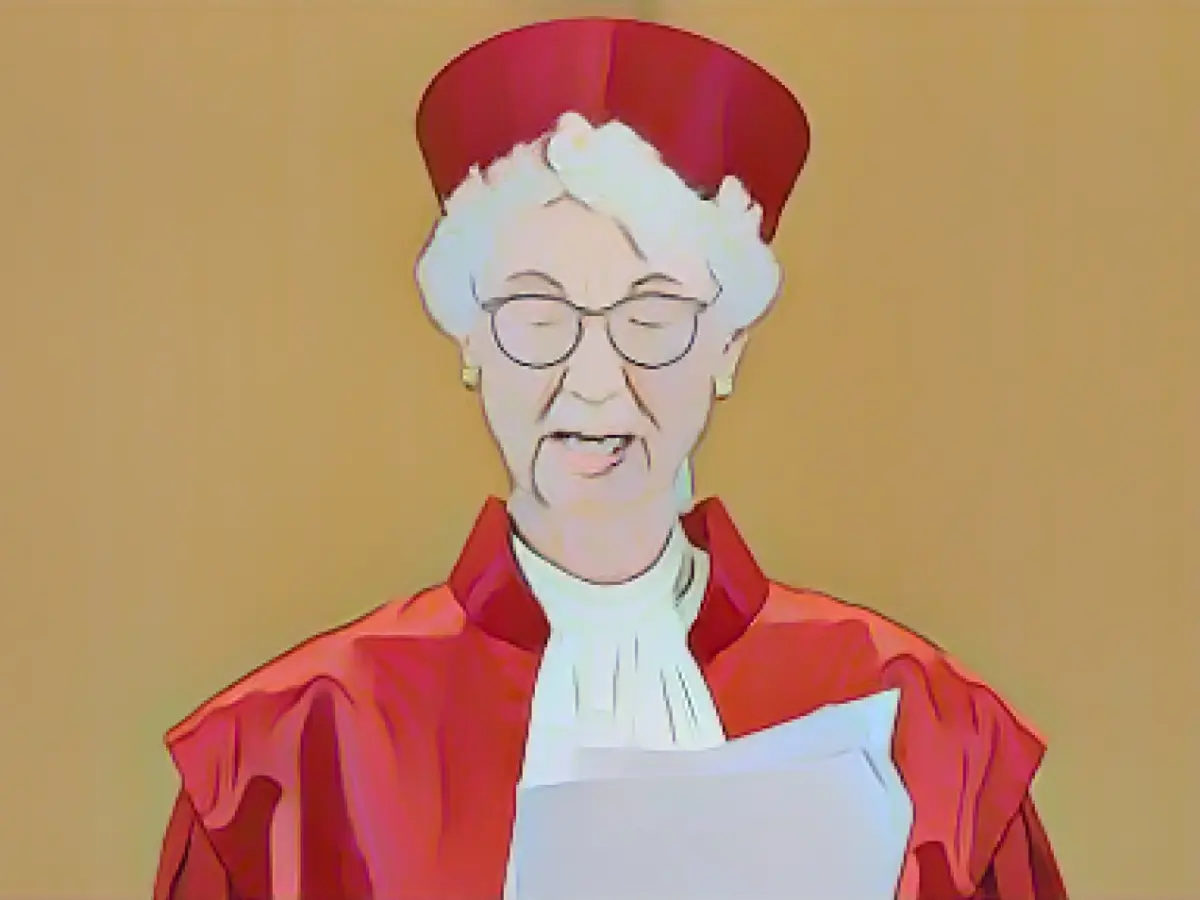What did the court decide?
Judgment from Karlsruhe - Bundestag election must be partly repeated in Berlin - why the electorate has reason to celebrate
The Bundestag election must be repeated in parts of Berlin, according to the Karlsruhe ruling. The reason for this is the sometimes chaotic conditions in the capital during the 2021 election. Because ballot papers were missing or there were too few polling booths, long queues formed in some places and some polling stations remained open longer than 6 pm.
The court has now ruled that a total of 455 out of around 2,200 constituencies were affected by the shortcomings and the election must therefore be repeated there. Both the first and second votes must be cast there again.
In doing so, the judges are going beyond a decision by the Bundestag. With the votes of the governing majority of the SPD, Greens and FDP, the Bundestag had already stipulated a partial re-run, albeit only in 431 districts.
A success for the CDU/CSU?
The Bundestag's decision was not sufficient, according to the CDU and CSU, which is why they appealed to the court in Karlsruhe. Nevertheless, today's ruling is not a clear victory for the CDU/CSU: "The decision of the German Bundestag of November 10, 2022 is largely lawful," the court clarified in a press release. The CDU/CSU parliamentary group had originally demanded that the second votes for the party lists in the half of the Berlin constituencies in which the then Federal Returning Officer challenged the election be recast. The ruling from Karlsruhe does not go that far.
However, the ruling does contain a reprimand for the MPs: The Bundestag had inadequately clarified the election process and had not followed up on all leads. For example, the transcripts of individual constituencies had not been analyzed, explained presiding judge Doris König - although the Bundestag was obliged to do so.
What does the ruling mean?
Even if the election now has to be repeated in more districts than actually planned by the Bundestag: This will not have any significant impact on the composition of parliament, and therefore just as little on the majority of the SPD, Greens and FDP.
For individual Berlin MPs, however, there is a lot at stake. Some who only narrowly won their constituency two years ago could suffer a defeat if the election is repeated. They would then have to leave the Bundestag after two years of parliamentary work. Others who failed in 2021 could now enter parliament after all.
However, the Federal Constitutional Court 's ruling also goes beyond the specific case of the 2021 Berlin election. The judges took a closer look at what exactly constitutes an electoral error and what does not. For example, the court says: "Excessive waiting times as such are not to be regarded as electoral errors." However, it does set a time limit in this case: if the waiting time exceeds one hour, this is no longer acceptable. In other words, in future, electoral officers will have to ensure that waiting times do not exceed 60 minutes. This is good news for voters. However: if a polling station is open until 6.30 pm and therefore half an hour longer, this could still be reasonable, according to the court.
Does the Left Party still have to tremble?
The situation was particularly tense for the Left before the ruling. In 2021, it remained below the five percent threshold and was only able to enter the Bundestag because it won three direct mandates - two of them in Berlin. If the Berlin election had had to be completely repeated, Gregor Gysi or Gesine Lötzsch could have lost their constituency. In that case, all 39 members of the former Left Party would have lost their seats, including the ten defectors around Sahra Wagenknecht.
However, it is now clear that in the constituencies of Gysi and Lötzsch, only so few sub-districts have to be re-elected that the loss of their direct mandates can actually be ruled out. The Left Party is also relieved: "The ruling makes it clear that we will remain in the Bundestag and continue to perform our task as the social opposition," former parliamentary group leader Dietmar Bartsch told the German Press Agency.
What happens next?
It has already been decided when the election will be repeated in the affected districts: on February 11, 2024, according to Stephan Bröchler, the state election director, immediately after the decision.
Read also:
- Year of climate records: extreme is the new normal
- Precautionary arrests show Islamist terror threat
- UN vote urges Israel to ceasefire
- SPD rules out budget resolution before the end of the year
- The CSU, as part of the Union parliamentary group, supported the appeal to the Federal Constitutional Court in Karlsruhe, seeking a broader review of the election irregularities in Berlin.
- The Federal Constitutional Court in Karlsruhe highlighted the importance of appropriate resources for election management, noting that inadequate planning and insufficient staffing can result in electoral errors.
- As the ruling in Karlsruhe pointed out, the SPD, Greens, and FDP parliamentary groups in the Bundestag had not fully addressed concerns raised during the federal election, particularly with respect to analyzing constituency transcripts.
- The SPD, Greens, and FDP parliamentary groups in the Bundestag will now need to adapt their strategies for the partial re-run of the election in Berlin, taking into account the insights and recommendations from the Federal Constitutional Court.
- The decision from Karlsruhe calls for greater transparency and accountability in the Union parliamentary group's handling of election matters, emphasizing the need for thorough planning and rigorous follow-up processes in future elections.
Source: www.stern.de








